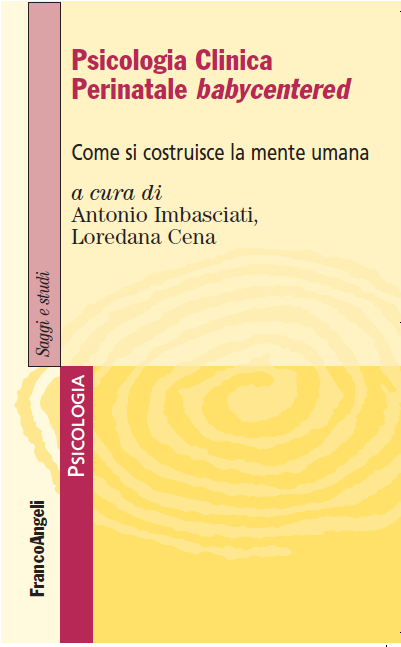
Babycentered Perinatal Clinical Psychology
For a long time in medical area “Perinatal Clinical Psychology” had the meaning of a psychological clinics in pregnant women and her puerperal period. What might happen in her baby was observed only for its clear organic pathologies: its interior vicissitudes were not known, as all scientists of the time thought it has no mental life. But nowadays Neuroscience has proven the heavy importance of its brain construction in its first neural net; and its first functioning in mental events without any consciousness.
These first neuromental structures condition the ones that are later constructed by the experience of the single child. Life experiences of a mind development are not those which appear in real external life, but they are the consequences of what a brain, as it functions in that moment in which it receives informations about them, organizes (builds) in its mental net. So we have a “cascade effect”, by which external situations and events are transformed into internal ones by the previously constructed neural net. Owing to this effect, nobody has a brain equal to another’s person one.
Nowadays our clinic attention is centered on these baby brain constructions much more than on maternal vicissitudes, so that a “Perinatal Clinical Psychology” must be a babycentered psychology, as in the title of this book. The mother is not considered in her “blues” in delivery and after, but for what her internal vicissitudes produce in her relation with her baby and child: into these pass informations that have the biggest effect on baby and child brain construction, as the future development of the brain of a single human depends from these constructions. Into the mother/child relations subliminal emotions communication happens and it is picked up by child brain, and transformed in neural net: it founds that specific future mindbrain.
In outlining this construction of human brain and its functioning in generating the individual mind of everybody, the Authors outline the functioning of the body, and a more complete conception about Psychosomatics, under the concept of Bodybrainmind. More detailed considerations on this “organismic” concept are stated in another book by Imbasciati, “Bodybraimind: seven lessons for a neuropsychoanalysis”.
